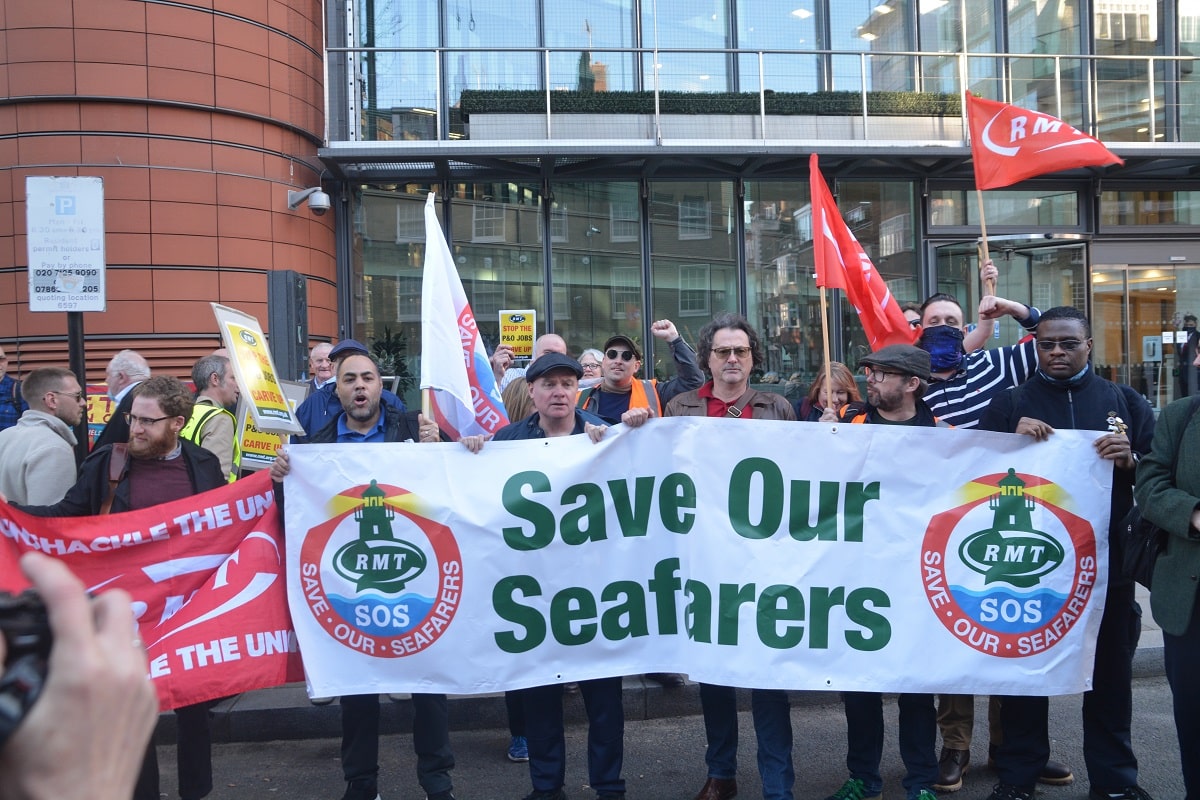Controversy surrounds P&O Ferries’ alleged underpayment of crew members, revealing gaps in legislative enforcement and worker protections in the maritime sector. Here’s the full story.
Feeling the Pinch
Amid the ongoing cost-of-living crisis and stubbornly high inflation, workers up and down the country are feeling the pinch in their pay packets. Despite the government’s ideal of turning the UK into a low-tax, high-wage economy, it seems that, despite the ongoing squeeze on living standards, some companies are getting away with paying wages that wouldn’t look out of place in the Victorian era.
One of these companies is P&O, the ferry company that handles a large portion of cross-channel traffic and is owned by Dubai-based DP World. Recent analysis conducted by the Guardian and ITV News suggests that some P&O Ferries crew members have been earning wages significantly below the UK minimum wage.
£4.87 an Hour
Pay slips reviewed by the news organizations indicate hourly rates as low as £4.87, which has raised concerns over exploiting maritime workers. These low-cost crew members, predominantly from countries like India, the Philippines, and Malaysia, reportedly endure gruelling 12-hour shifts without being paid the legal minimum wage.
Grant Shapps, the UK’s transport secretary during P&O Ferries’s controversial mass layoffs in 2022, had pledged to address the issue of subpar wages for ferry workers.
At the time, Shapps stated, “This government will not stand by while the requirement to treat seafarers with due respect and fairness is brazenly ignored.” However, the promised reforms have yet to materialize despite assurances of legislative action to ensure fair pay.
Government Action, Government Inaction
While the French government is moving to enforce the French minimum wage of £9.95 ( €11.65) for cross-channel operators, the UK government has yet to act.
This is not P&O Ferries’ first brush with controversy. In 2022, it terminated approximately 800 workers without notice or consultation. Amid a massive public outcry over the sackings, Shapps called for the resignation of P&O’s chief executive, Peter Hebblethwaite.
However, Hebblethwaite remained in his position, and despite the government’s promises that laws would be enacted to safeguard seafarers’ rights, the persistence of poverty wages underscores the inadequacy of the government’s attempts to fix the problem.
“At Least the Minimum Wage”
P&O Ferries has vehemently denied allegations of paying below the minimum wage, with a spokesperson claiming, “We always pay at least the minimum wage required by national and international law. In addition to wages, we provide all meals, modern accommodation, gym and sauna, and travel to and from their home country including flights for international workers coming on to our ships.”
They continued, “We provide an industry-leading support package and work hard to ensure their welfare, wellbeing and mental health are properly cared for.”
“Complex Issue”
A spokesperson for the Department of Transport refuted claims of inaction, suggesting that the government had done its best to address a “complex issue involving the minimum wage, ports, and international maritime law.”
The department anticipates that the Seafarers’ Wages Act, which would guarantee ferry workers compensation equivalent to the UK national minimum wage, will be enacted this summer.
The Department of Transport spokesperson stated, “We have worked at pace to bring forward our Seafarers’ Wages Act, consulting extensively with industry and unions to ensure we have ironclad legislation in place to help prevent this from happening again while working to strengthen seafarer rights around the world.
They continued, “We expect to bring this into force in the summer, around the same time as French legislation, forming an international minimum wage corridor across the Dover strait.”
Greater Accountability
However, critics, including opposition figures like shadow transport secretary Louise Haigh, demand greater accountability from the government in addressing exploitative labour practices.
Haigh stated, “Ministers cannot sit back any longer and allow these exploitative employment practices to continue at sea.” As legislative efforts to address the issue gain traction, there is hope for improved conditions for ferry workers in the near future.
The forthcoming Seafarers’ Wages Act, alongside parallel initiatives in France, signals a step towards establishing an international minimum wage standard for maritime workers. However, the effectiveness of these measures will vary considerably, seeing as P&O has been getting away with underpayment of its workers since the mass layoffs in 2022.
Defying Government
Despite pledges from both government officials and P&O itself, the company has continued to defy the law regarding the persistence of substandard wages for a group of vulnerable immigrant workers.
It remains to be seen whether the upcoming legislation will substantively change the working conditions and pay packets of those workers.
More Articles Like This…
Broken Britain: 12 Reasons Behind the UK’s Decline
Say the Unsayable: 10 Occasions When Farage Spoke His Mind About Britain
The post “Minister’s Cannot Sit Back” – P&O Ferries Exposed as Paying Crew Below UK Minimum Wage first appeared on Edge Media.
Featured Image Credit: Shutterstock / Philip Robinson 1.
Grant Gallacher is a seasoned writer with expertise in politics and impactful daily news. His work, deeply rooted in addressing issues that resonate with a wide audience, showcases an unwavering commitment to bringing forth the stories that matter. He is also known for satirical writing and stand up comedy.

